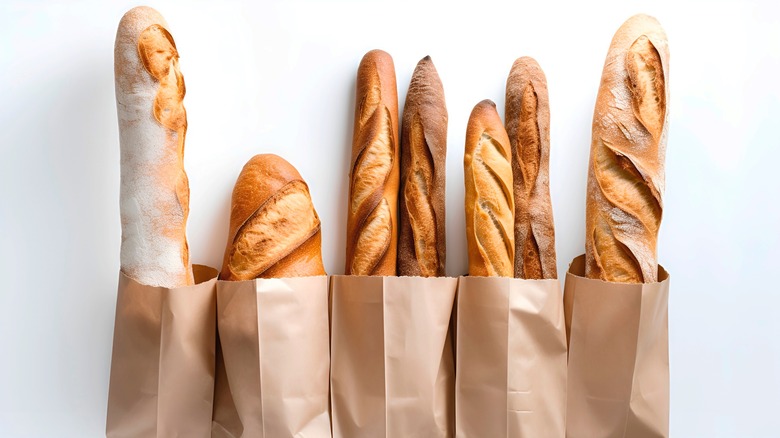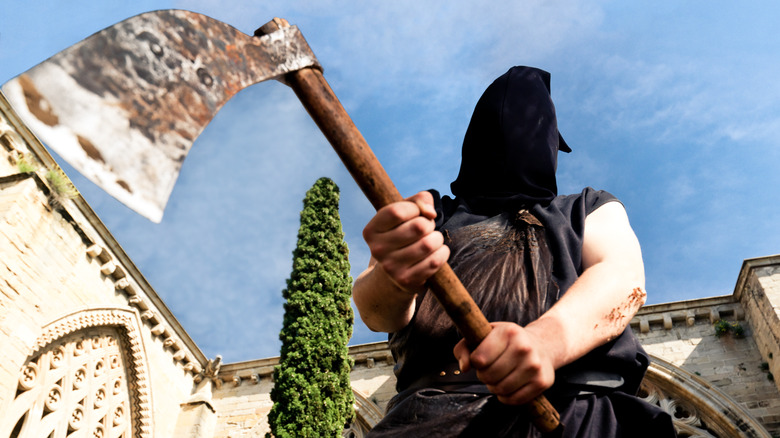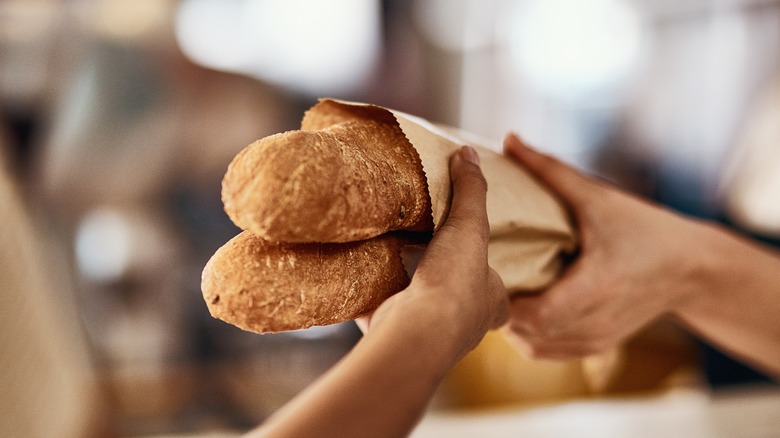The Fascinating Superstition Surrounding Upside Down Baguettes
Few foods are as widely beloved as the baguette. It's easy to understand why slicing into this fresh bread is so satisfying, but it's no laughing matter for French folks. As a matter of fact, French bakeries are defined by law, and there are strict regulations outlining acceptable recipes.
One aspect of baguette baking and selling is governed not by laws but by the paranoia of the public. There are plenty of food and drink superstitions around the world, but few are as macabre in origin as the mythos surrounding the sale of upside-down baguettes. Some historical records suggest that bakers used to set aside specific loaves for executioners by turning them over, and those who touched or took this turned bread were heading toward poor fortune. As such, there are precautions you are supposed to take if you ever wind up incidentally buying one of these marked loaves. However, the historical record tells us that the baguette predates this piece of paranoia.
An upside-down loaf for the man in black
If you have even a modicum of knowledge about the history of Europe, you'll know that the Middle Ages were a tumultuous time. As such, it's easy to imagine the myriad opportunities the era would present to a professional killer. During the reign of King Charles VII, the amount of convicts sentenced to death exceeded the amount of available axe-wielding executioners willing to carry out sentences. The king, noticing this potentially disastrous discrepancy, appointed (or rather, forced) certain citizens to put people to death.
Breaking bread with the folks in your community is essential to the cohesive function of society, especially in the Middle Ages. But this truism becomes trite when your neighbor is tying the noose. Bakers began flipping the lowest quality baguettes over on the counter, set aside so the executioner could swing by and snag a lousy loaf. However, even these bottom-tier baguettes were a step up for these loathed lawmen. King Charles himself had to issue an edict forcing bakers to sell their wares to executioners and blackened or beaten up loaves beat breadless sandwich lunches during a day spent killing criminals.
Did bakers bake baguettes for reviled executioners?
Before you succumb to the pang of sympathy you're feeling for executioners, you should know that the timeline doesn't entirely support this story of bread-based selective service. In fact, this tale posits that upside-down bread was served to executioners during the Middle Ages, which was several centuries before bakers ever made a baguette – the first baguette wouldn't be baked until the middle of the 19th century. So, though executioners likely received some bad baked goods due to their profession, the bread was not a baguette.
Today, the classic French baguette is a cultural milestone, but that doesn't mean the bread doesn't still hold a certain stigma. It's still unlikely that you'll find an upside-down baguette when you wander into a Parisian bakery, which is strange because the superstition predates the bread form itself. If you accidentally purchase an improperly displayed baguette, you only need to scratch a cross into the bottom of the bread with a knife to reverse any bad luck.


